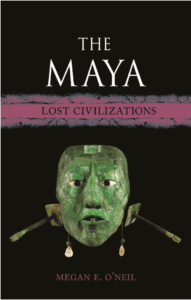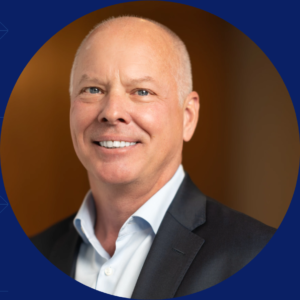
On April 4th, Dr. Lance Frye, the former Surgeon General of the Muscogee Creek Nation, spoke at the Rollins School of Public Health’s third annual National Public Health Week.
Dr. Frye has an expansive background working in residency, private practice, the military, the state of Oklahoma and California, and Tribal governments. He knew his passion in life was to help others and make a difference, especially in the field of women’s health. He shared personal stories on how he met his wife in the army and how his son found himself with six cats. During his time practicing Military Air Space Medicine, he learned how to practice herd health. Dr. Frye traveled to Nicaragua, Uganda, and Malawi. He praised the work of Sister Rosemary Nyirumbe for resisting the army and protecting the young girls of Uganda.
Dr. Frye, who served as the Commissioner of Health for Oklahoma, highlighted some important events that marked the beginning of the COVID-19 pandemic. On March 6th, 2020, the first case of COVID-19 was reported in Oklahoma. This was followed by the cancellation of the Oklahoma City Thunder Game on March 11th, the inability of the Princess Cruise to dock on March 16th, and the initiation of lockdowns on March 24th. At the onset of the pandemic, Oklahoma, like the rest of the country, was unprepared to handle the pandemic and lacked the necessary supplies. The situation looked grim, with an expected death count of 13,000. It was an all-hands-on deck operation. He had to rapidly improve infrastructure, create proper response guidelines, clean up the inner records keeping of the Oklahoma State Department of Health, and fight for personal protective equipment along with many other struggles to protect Oklahoma against the pandemic.
Dr. Frye recounted how the governor of Oklahoma called the National Guard and established a multi-agency command to consolidate resources. He was a part of the Governor’s Solution Task Force as the Commissioner of Health. His task was to get supplies and reach out to the hardest hit facilities: hospitals and senior living facilities. The Oklahoma State University Project Extension for Community Healthcare Outcomes (ECHO) was adopted to connect and relay health information, especially to rural communities. More than 150 ECHO sessions and over 40,000 parties participated in this project. Their main goal for recovery was vaccine promotion and distribution. The rollouts occurred promptly with nurses being vaccinated in December 2020, himself and the governor in March of 2021 and actress Kristin Chenoweth in April of that same year.
The United States was very politically divided over the vaccines and Oklahoma was no different. There were many strong, consistent voices against vaccines and masks who were very influential during policy decisions. The economic shutdown was also a hard decision to enact even though it was the best course of action. Many Tribal governments formed vaccine lines and mobilized large efforts such as talking to casino heads to transferred skills to rolling out the vaccine. These efforts were open to everyone which helped make vaccines accessible. Dr. Frye facilitated many conversations and collaborations with hospitals, suppliers, and other organizations helping the effort.
Dr. Frye and the leadership of Oklahoma felt that they made the correct yet difficult decisions. In 2022, Dr. Frye was appointed as the first Surgeon General of the Muscogee Creek Nation. He entered this role because he felt that he could make a positive change within the Muscogee Nation’s health system. He reflected on how hard it was to operate the public health department. There are 39 federally recognized tribes in Oklahoma because of ongoing historical traumas and complex Tribal-state boundaries. All these need to be addressed within the public health system.
Some of the public health issues Dr. Frye worked to solve is the diet crisis within Tribal nations. The Federal Indian Removal Act of 1831 and the legacies of “Trail of Tears” disrupted traditional food ways and the US rations did not provide the same nutritional value as Native foods from the homeland. Processed food products like flour, lard, and sugar increased the rates of poor health outcomes such as diabetes by three time within the Muscogee Creek Nation. While working through approaches, Dr. Frye and his team looked through historical data, surveyed the opinion of leaders, established a data collection to recoding and share patient information, and worked to ensure that the health services Dr. Frye sought to build met them need of the patients seeking care. One program Dr. Frye enacted to address some of the health concerns of the Muscogee Creek Nation was the Muscogee Creek Nation Diabetes Program. The program included the motto “Stay Active to Stay Healthy”; they boosted hospitals, schools, and cultural center’s resources to support the program. The internal medicine departments of hospitals also hired more specialized healthcare professionals to meet the demands of the program.
A hurdle Dr. Frye worked to overcome was the historical underfunding of Tribal Health by developing a self-governed health care system under the Indian Self-Determination and Education Assistance Act (ISDEAA). The 2020 Supreme Court case McGirt vs Oklahoma upheld Muscogee Creek Nation’s sovereignty and self-governance. State and tribal governments had to adjust for preexisting systems because Muscogee Nation had to build up their own public health system as opposed to sharing departments with Oklahoma. New Tribal policies need to be codified to establish authority, financial allocations, and set public health codes. To create a robust Health Department, Dr. Frye has worked build an inter-tribal and tribal-state collaboration to set up and share essential public health services with Tribal nations who have the best resources to fulfill them.
There are still challenges Dr. Frye faced such as silos of communication, lack of accessible patient data, funding, coordination, collaboration, and complex politics. Dr. Frye ended his talk with the reminder that everyone in public health—by extension healthcare, works together for a common goal. Some of the lessons Dr. Frye has taken from his experience as the first Surgeon General of the Muscogee Creek Nation was the importance of modernized and proactive data to implement preventive measures instead of reactivity. He also focused on the importance of collaboration, competence of providers with Indigenous cultures, and striving for long-term benefits.
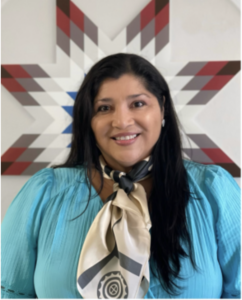 NAISI Welcomes Dr. Laura Harjo (Mvskoke) to Emory University as a Distinguished Fellow in Indigenous Knowledge for the 2023-24 academic year.
NAISI Welcomes Dr. Laura Harjo (Mvskoke) to Emory University as a Distinguished Fellow in Indigenous Knowledge for the 2023-24 academic year. 
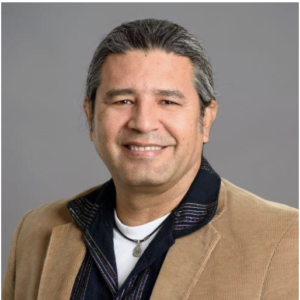


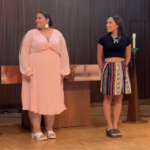
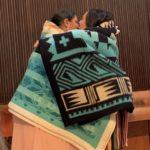
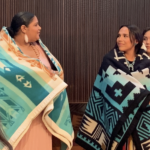
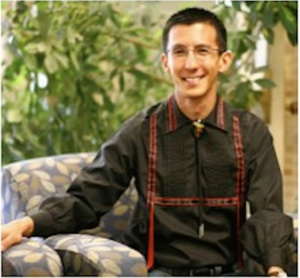 On April 10 2023,
On April 10 2023, 
